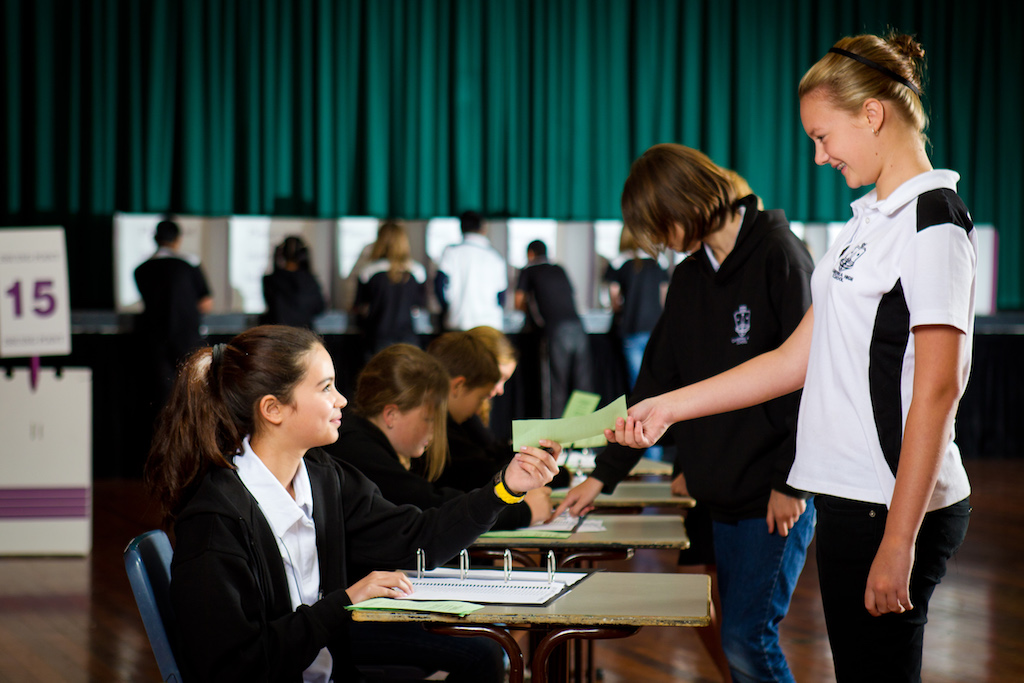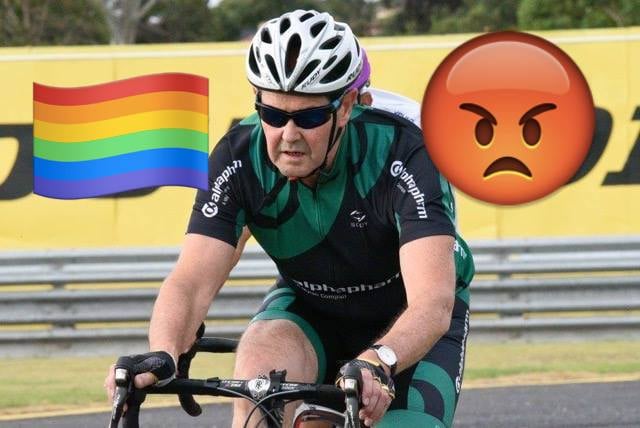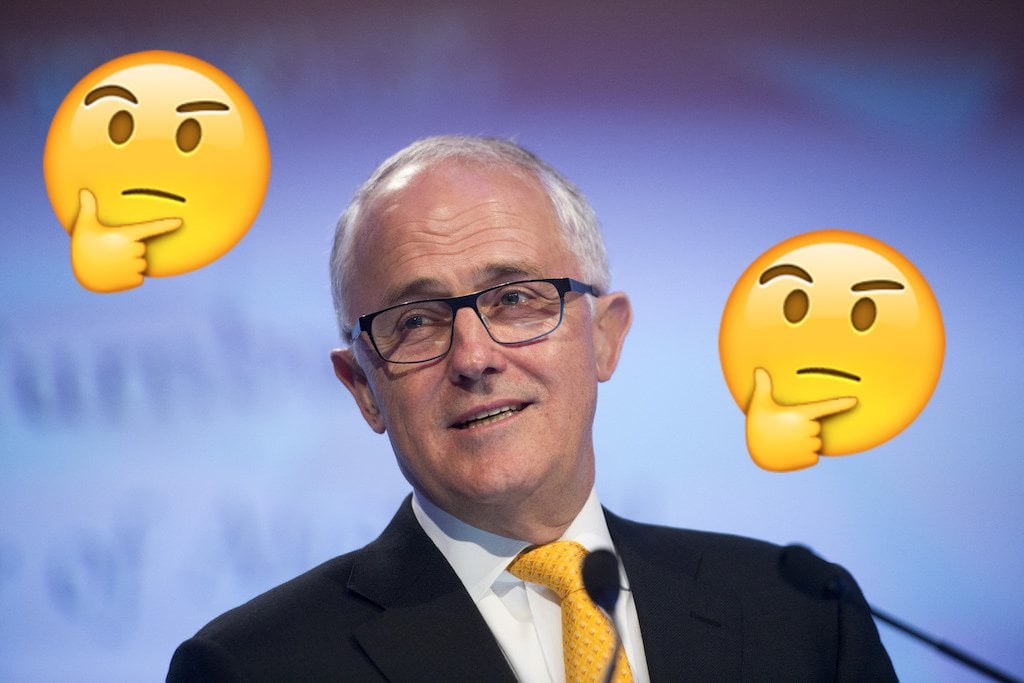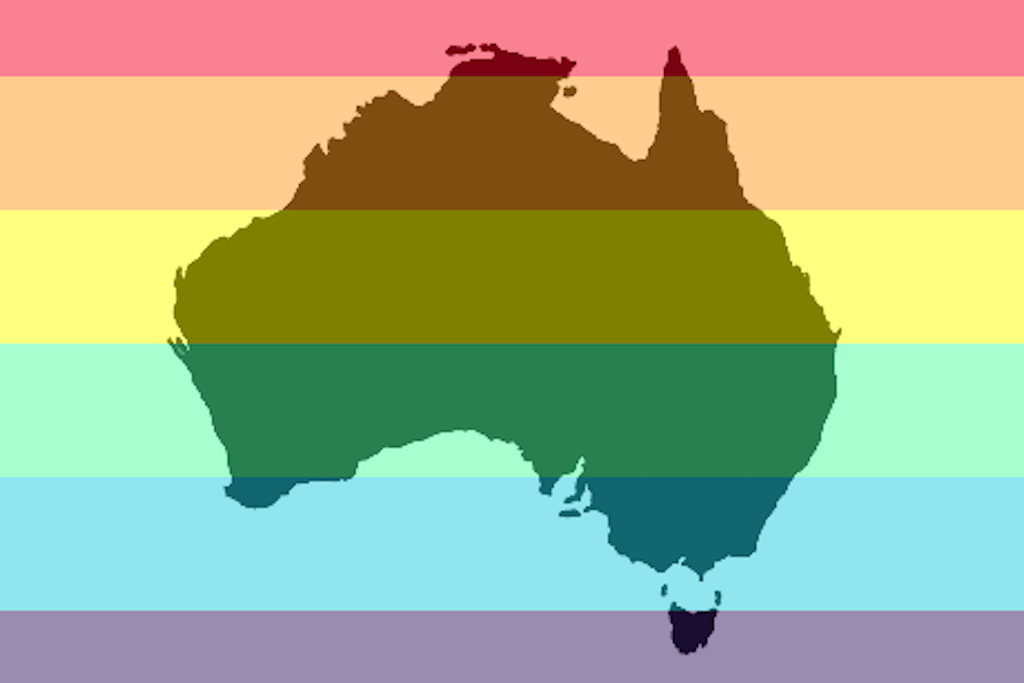Legal Experts Say The Govt Definitely Fucked Up Their Postal Survey
Did the government make a rookie mistake?

There are a lot of unanswered questions about how the postal plebiscite on marriage equality will actually work, which is worrying since it’s supposed to kick off in less than a month. But there’s one specific issue that some of Australia’s most well-respected legal scholars are particularly worked up about: the eligibility of 16 and 17-year-olds to take part in the vote.
The Commonwealth Electoral Act makes it clear that in a normal election only Australians aged 18 and over, who have registered to get on the electoral roll, are eligible to vote. But the voluntary postal plebiscite is definitely not a normal election. In fact, it’s not an election at all. The only rules that apply are the ones the government has set up in a hastily worded ministerial direction establishing the plebiscite.
And there’s a growing legal consensus that the government, in its eagerness to get the plebiscite underway, has made a huge technical mistake. It’s potentially extended the vote to 16 and 17-year-olds for the first time in Australian history.
Hold On, What Exactly Has The Government Done?
Before we get into the messy legal details, it’s important to remember how we’ve ended up in this voluntary plebiscite situation. The government wanted to hold a regular, compulsory national vote run by the Australian Electoral Commission on the issue of marriage equality. But it needed to pass legislation to allow that happen. That legislation was blocked by the Senate twice.
Because the government couldn’t get legislative support for the plebiscite it resorted to the voluntary, postal plebiscite model with the vote to be run by the Australian Bureau of Statistics. Under the Census and Statistics Act, the government doesn’t need to pass a new law for this kind of vote. The Treasurer, in this case Scott Morrison, can simply issue a direction to the ABS telling them to poll Australians on the question of marriage equality. Which is exactly what he did.
The problem arises from how that direction was worded.
Exhibit A:
I honestly think that in their haste the govt have allowed 16 & 17 year olds to participate in the SSM postal vote #auspol pic.twitter.com/BIvrQvEO1k
— Chris Gentle (@crgentle) August 9, 2017
The ministerial direction defines who is able to take part in the plebiscite as “electors”. Those electors are anyone who is already on the electoral roll and, crucially, anyone who has “made a valid application for enrolment” before the deadline of August 24.
As political commentator Stephen Murray has laid out in a comprehensive article on the issue, 16 and 17-year-olds are able to apply to be on the electoral roll. They aren’t able to vote until they turn 18, but they are legally permitted to enrol.
The legislation makes it very clear, numerous times, that 16 and 17-year-olds who have registered to vote are on the roll, which would appear to give them the right to take part in the postal plebiscite under the government’s current ministerial direction.
The Government Doesn’t Think It Made A Mistake
When Junkee first covered this story last week, we contacted the government and the AEC to see what their interpretation of the ministerial direction was when it came to the voting rights of 16 and 17-year-olds.
Initially the AEC said that they wouldn’t comment, and that this was an issue for the ABS and the special minister of state, Mathias Cormann. But minutes later the AEC issued a statement saying, “The survey instruments will be sent to those who are on the roll; 16 and 17-year-olds are not on the roll”.
Cormann contacted Junkee to say the same thing.
AEC statement re Marriage Law Postal Survey – 16 & 17 YOs #auspol pic.twitter.com/hXZEVLqhcu
— AEC (@AusElectoralCom) August 11, 2017
But here’s the problem for the government: just because they say 16 and 17-year-olds aren’t on the roll, and therefore won’t get a ballot, doesn’t actually change the law. And there are plenty of experts who think they’ve made a pretty big mistake.
Experts Are Pretty Sure The Government Made A Mistake
Michael Maley worked at the AEC for 30 years, including as the Director of Research, Legislative Projects and Freedom of Information, and as Special Adviser on Electoral Reform and International Services. He’s also a member of the editorial board of the US-based Election Law Journal. In 1983 he was one of the people who prepared drafting instructions for the amendment to the Commonwealth Electoral Act that gave 17-year-olds the right to enrol. So he knows a thing or two about electoral law.
“It was absolutely clear to our minds then that people aged 17 would go on the roll but they wouldn’t be able to vote until they turned 18,” Maley told Junkee.
He says it’s wrong for the government and the AEC to interpret the Electoral Act as excluding 16 and 17-year-olds.
“It’s not a correct interpretation of the law. The direction is to include everyone on the roll. The Act says that once a qualified person applies as a 16 or 17-year-old they have to be put on the roll ‘without delay’.
“If they haven’t been putting them on, that seems plainly inconsistent with the Act.”
Maley told Junkee that he “completely agreed” with Stephen Murray’s analysis of the issue and added it looked like “an absolutely open and shut case”.
Graeme Orr is a Professor of Law at the University of Queensland, specialising in electoral law. He told Junkee that, “Literally the direction refers to the roll, which includes 16 and 17-year-olds”.
He added that there is a “certified voters list” based on the roll and used for the purposes of an election, which excludes people who are under 18. So if the government wanted to exclude people under 18, it probably should have used that term in its direction instead of the full electoral roll.
Another electoral law expert, Professor George Williams, the Dean of Law at the University of New South Wales, told Junkee that the ministerial direction “Directs the ABS to survey 16 and 17-year-olds that have made an application to join the roll”.

Professor George Williams
“If [the AEC and ABS] administratively override that direction then people could try and enforce that through the court,” he said.
Williams added that the government could legally issue a new direction to clarify the issue, but said, “You can’t be modifying the rules as you go. Sixteen and 17-year-olds can marry and they have a stake in this debate. I think it’s inappropriate to exclude people who have a stake in this.”
Professor Anne Twomey is an electoral law expert from the University of Sydney. She told Junkee that under the Commonwealth Electoral Act, “Persons aged 16 and 17 are not regarded as being on the roll for the purposes of an election and cannot vote in an election — but the plebiscite is not an election.
“On that basis, it would appear that they are enrolled and therefore could potentially vote in something that was not an ‘election’, if the relevant criteria is simply that the person is on the electoral roll.”
So… What’s The Consensus?
The strong view from Australia’s most respected electoral law experts, as well the guy who helped draft the relevant legislation, is that the government has inadvertently extended the democratic franchise, if only for this one postal vote, to 16 and 17-year-olds for the first time.
It appears that the sloppily worded ministerial direction didn’t take into account the fact that 16 and 17-year-olds can apply to be on the electoral roll. The issue would be pretty easy to fix. All the government needs to do is issue an updated direction, clarifying that only people on the roll who are 18 and over are eligible to vote. But for some reason the government doesn’t seem eager to do that — perhaps to avoid embarrassment.
But Wait! There’s More
There’s another slab of evidence that points to the fact that 16 and 17-year-olds are on the roll, despite what the government and the AEC are saying. All registered political parties are given access to the electoral roll in order to help facilitate communication with constituents.
Junkee has confirmed with multiple sources, across different political parties that have access to the electoral roll that it does, in fact, include people aged 16 and 17 who have registered to vote. So there you go.
People with access to the electoral roll say 16 and 17-year-olds are on the roll. Electoral law experts say they are on the roll. A former senior AEC official says they are on the roll.
Why Should 16 and 17-Year-Olds Be Able To Vote Anyway?
The moral arguments for and against extending the vote to 16 and 17-year-olds aren’t really relevant to this situation. The issue about who can vote in the postal survey is a technical and legal matter. But there are people who think young Australians should be able express their view.
Professor Williams thinks 16 and 17-year-olds should be able to vote in the plebiscite because they’re legally able to marry, and this issue directly impacts them.
The Greens agree. The party’s LGBTIQ spokesperson, Janet Rice, told a press conference yesterday, “We say that 16 and 17-year-olds, young Australians who are old enough to get married, should be old enough to vote in any public vote about marriage equality”. Greens leader Richard Di Natale has written to the Prime Minister asking him to include 16 and 17-year-olds in the plebiscite.
If you can marry at 16, why can't you vote for #marriageequality? Join the Greens in making this postal vote as inclusive as possible. pic.twitter.com/q09GLxaer9
— Richard Di Natale (@RichardDiNatale) August 14, 2017
Labor Senator Sam Dastyari also supports extending the right to vote in all elections to 16 and 17-year-olds. In regards to the postal survey, he told Junkee: “If this is a non-binding plebiscite, what do you lose by having the civic participation of 16 and 17-year-olds? Even if you wanted to pull that group out and report on the result separately, considering we’re wasting the money, imagine if we can get civic participation from young people out of it”.
GetUp campaign director Sally Rugg told Junkee, “GetUp believes the voting age should be lowered to 16 — so we absolutely support the idea of 16 and 17-year-olds having their voices heard in the government’s marriage equality postal plebiscite.”
Junkee has asked the government and the AEC to respond to the legal arguments put forward by Murray, Maley, Orr, Williams and Twomey, but we’re yet to receive a reply. It seems that despite the evidence, and the growing calls to ensure 16 and 17-year-olds can take part, ballots will only be sent to people over the age of 18.
If the government doesn’t issue a new ministerial direction the matter could end up in court, alongside the two current appeals to the High Court to knock over the entire legal premise of the postal survey. All it would take is one plucky 16-year-old, fired up about their legal voting rights, willing to take on the government.
–
Feature image via Australian Electoral Commission.
–
Osman Faruqi is Junkee’s News and Politics Editor. He tweets @oz_f.


